Home > Death in the Legend of Zelda
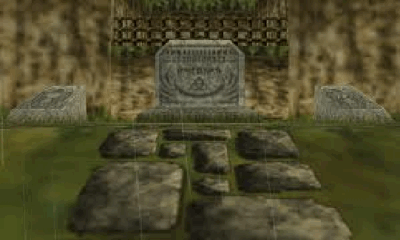
Death is an event that every person will eventually have in common - an inescapable fate that we must all succumb to. We, as gamers, might possibly understand death in a different way from other people. We play video games where beings are being shot, sliced, burned, etc. Literally all of the above. It may not be as present in our lives as, say, a soldier, but it is definitely present in our obvious hobby, be it merely a fantasy. Different kinds of games express death in different ways. You play a cliche war game and gain a headshot, BAM, no big deal. Just more points. You play an emotional RPG, and sometimes both you and your character go through a sequence of grief after what they've just done. There are mature expressions of death and, not necessarily the opposite, nonchalant expressions of death. I'd say that The Legend of Zelda definitely falls into the former.
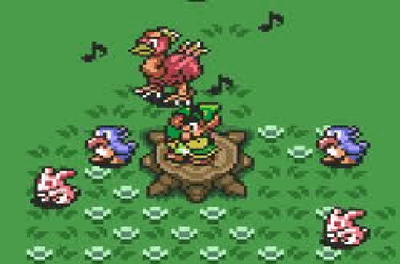
In my opinion, The Legend of Zelda has always had a mature take on death, be it a young depressed man heeding no warnings and entering a forbidden forest, or a wooden butler holding his petrified son while game credits roll. Younger kids playing a Zelda game will almost definitely be introduced to death in some way. Take my own personal experience: 6 years old and playing my very first Zelda game, A Link to the Past. Throughout the game, walk by the young man playing a flute countless times, occasionally stopping to listen for a few minutes; as Zelda music tends to enthrall you. Longing to make contact, knowing that this boy has SOMETHING to do with the game. Why does he keep disappearing when I run to meet him as the animals run away? Fast forward to obtaining his flute for him, only to play him one last song before his existence fades into nothingness and his body into wood. I remember sitting for a second, thinking about what had happened. It was sad. I knew what death was, but the way it happened was very emotional and new to me. Wishing that there was something I could have done for him, I carried on with my adventure.
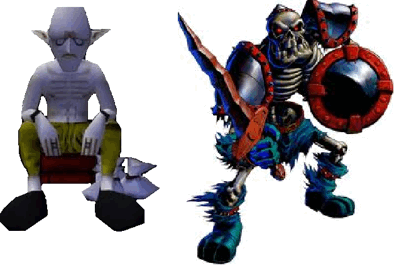
I'm sure many of the readers had a similar experience with death in The Legend of Zelda. The way death is presented in no way glorifies it, like video games are accused of nowadays. It offers a perspective on death that enables a player to appreciate what is happening and the concept itself. It makes you care. Presented to you is a character. One you have essentially no ties with, save their current situation, and yet somehow within that short period of time you are emotionally impacted by what they are going through. Take Grog, for example, the depressed antisocial punk with a love of cuccoos seen hidden amongst the darkness in Ocarina of Time. By the time his life comes to an end, you've probably familiarized yourself with him. "People are disgusting." Presented initially as a jerk, you come to realize he's merely a sad soul (or angsty). He asks you to do a simple task, but when you return, all that awaits you is a young Kokiri girl expressing that he had turned into a Stalfos. For some reason, the instant I read that, it sent a jolt through me. "Wow, that's really messed up."
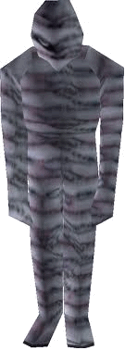
While many of the Zelda games offer perspectives on death, none do more so than Majora's Mask, often considered the darkest of all Zelda games. There is death left and right in that game, and each time is more emotional than the last. The sea-side musician expressing his final words to you through song; The great Goron Hero Darmani, a lost soul longing only to save the day one last time. A young girl whose father has been transformed into a Gibdo, a mindless undead mummy. The latter being arguably not exactly "death," but I find that it fits. Almost every person you meet in Majora's Mask is truly suffering in some way, whether it be based on death or merely situational debts. It is not the simple situation involving death that makes Zelda express it so perfectly. Topically, "lost spirit of dead soldier" isn't very emotional. It is the presentation that makes the experience so deeply moving, and we all know that Zelda is a god amongst games when it comes to presentation.
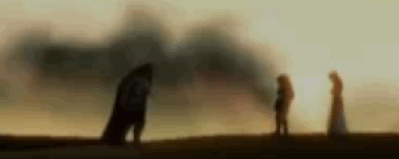
The death of one particular character within the Zelda universe holds equal impact for all of us...The death of Ganondorf. Everyone wants to see Ganondorf bow-out after a glorious battle; the ultimate evil and the essence of all that is wrong. The feeling you get knowing you have ended this great threat is comparable to no other. Avoiding a giant paragraph expressing all of the ways Ganondorf has met his demise, I'll simply use my pick of Ganondorf's most fitting end as an example. This takes place in Twilight Princess.
The battle has finally come to an end, as you have struck the final blow against the world's ultimate evil. Holding strong, he doesn't falter even a little. Drawing his final breath, the tall godlike man doesn't so much as drop to his knees. Against the twilight, Ganondorf's silhouette is seen standing on the top of the hill, his cape continuing to flap against the wind. In death, he is still standing his ground in all of his magnificence - a fitting final performance for the evil king of thieves.
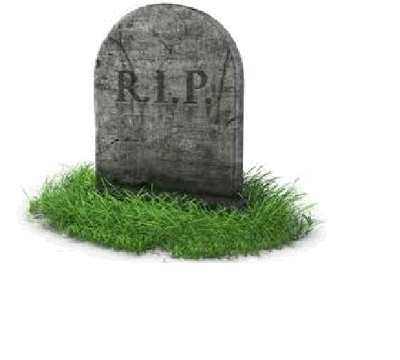
My underlying idea is this: like most things in Zelda, the presentation of a concept as dark as death is nearly perfect. When a character has lost their lives, it sticks with you. No game has more appropriately approached the topic of death. As a game that children and adults alike play, it crosses no boundaries and maturely depicts such a concept in a manner so that everyone can be equally affected, regardless of who they are, in an emotional way. Zelda is in no way a "children's game," as I've heard it being accused of, but it is also not a game that younger kids can't handle. Zelda is for everyone, and I feel like it helped me, when I was younger, understand death more. It taught me that death isn't something that should stop you in your tracks, unable to continue. Your goals are still there, and the memories of those lost will stay with you. If you've done all that you can for someone in their time of need that is all that matters.